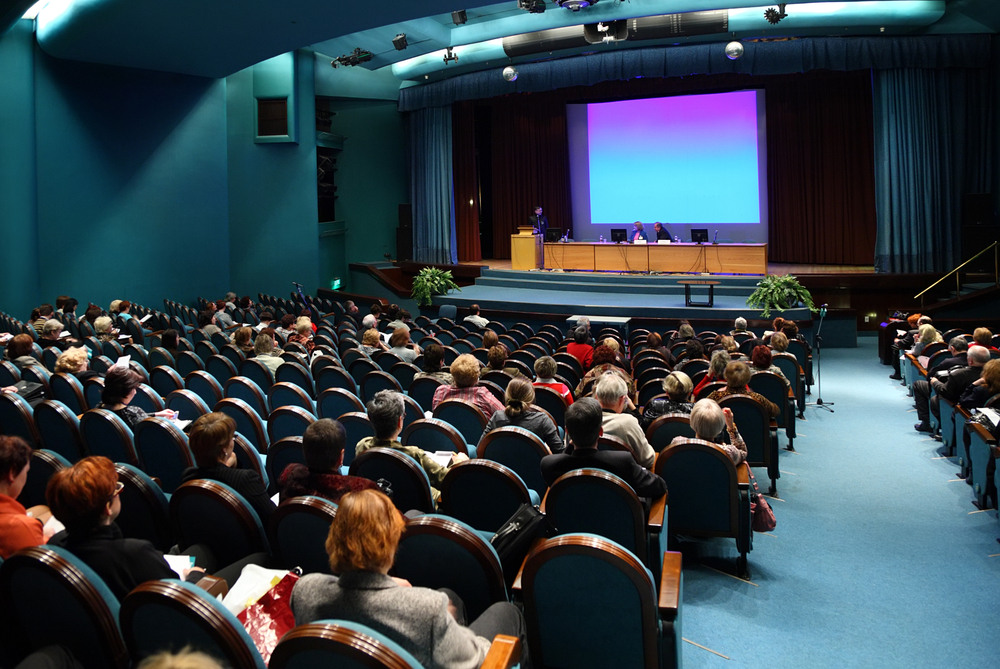Prior to the COVID-19 pandemic, in-person conferences and expositions were the norms. As we adopted the “new normal,” it’s become increasingly apparent that in-person meetings may be out of the question for a little while longer. The pandemic has led to businesses having to adapt to different operating conditions. However, as Time Magazine reports, the vaccine rollout is getting faster, so we’re likely going to return to something resembling regularity a lot sooner than expected. The question that remains to be answered is how many of the things we established to cope with the pandemic will continue after everyone is free to resume their activities.
The Rise of Digital Events
Lockdowns across the country forced many in-person gatherings to shut down. Not only were family events impacted, but massive conferences. However, the demand for these conferences persisted, and event organizers decided to figure out a way around the lockdown restrictions. Part of the fallout of this limited gathering space was a growth of digital interaction. Individuals could interact closely with one another through the digital space without having to risk their health.
Event planners quickly seized on this and set up several completely virtual events. They were met with great success, as users enjoyed the feeling of being able to explore and interact like they used to before the pandemic shut everything down. As impressive as these displays were, they still lacked something. That in-person feeling was necessary for some to feel as though they were actually attending an event. According to Martech, as much as two-thirds of professionals agreed they won’t be attending in-person gatherings until there was a reliable vaccine in operation. The only other option for meetups was a combination of in-person and digitally streamed events.
Hybrid Events Defined
A hybrid event utilizes the digital transmission of the event while still catering to those who would like to be there in person. They initially exploded onto the scene during the pandemic, allowing professionals to gather and discuss pressing industry details with those that we’re unable to visit because of lockdowns or border restrictions.
Hybrid events have shifted from being just another experiment to becoming a regular thing in some industries. Mixed events allow for event planners to be more flexible with their targeting. Thus, professionals can decide whether they want to attend in person or prefer the digital invite.
Hybrid events have several benefits for event planners. They tend to require less space, even with a massive attendance record. Digital streaming doesn’t need much room to set up, and automatic management of cameras allows for everyone to witness the occurrences on the event’s stage at their leisure.
Additionally, because of the lowered number of supplementary and supporting elements, there’s a far eco-friendlier outcome as opposed to in-person gatherings. Event planners have gotten used to the digital streaming of events. With successful collaboration with the best corporate meeting venues, they could arrange for massive events with low cost and environmental impact.
What We Expect Post-Pandemic
With so much still uncertain about vaccine rollouts, many marketers are wary about attending in-person gatherings. Many more would opt for a digital forum instead of one that occurs in real-space because it’s easier on their scheduling.
With so much of the world already working in a remote environment, hybrid events may become more of a regular thing, even post-pandemic. The benefits to both the event planners and the attendees cannot be understated. We’ll likely see conferences share the hybrid events stage alongside expositions, trade shows, and a myriad of other in-person meetups that can be done in this dual format within the coming years.
This is a Contributor Post. Opinions expressed here are opinions of the Contributor. Influencive does not endorse or review brands mentioned; does not and cannot investigate relationships with brands, products, and people mentioned and is up to the Contributor to disclose. Contributors, amongst other accounts and articles may be professional fee-based.

